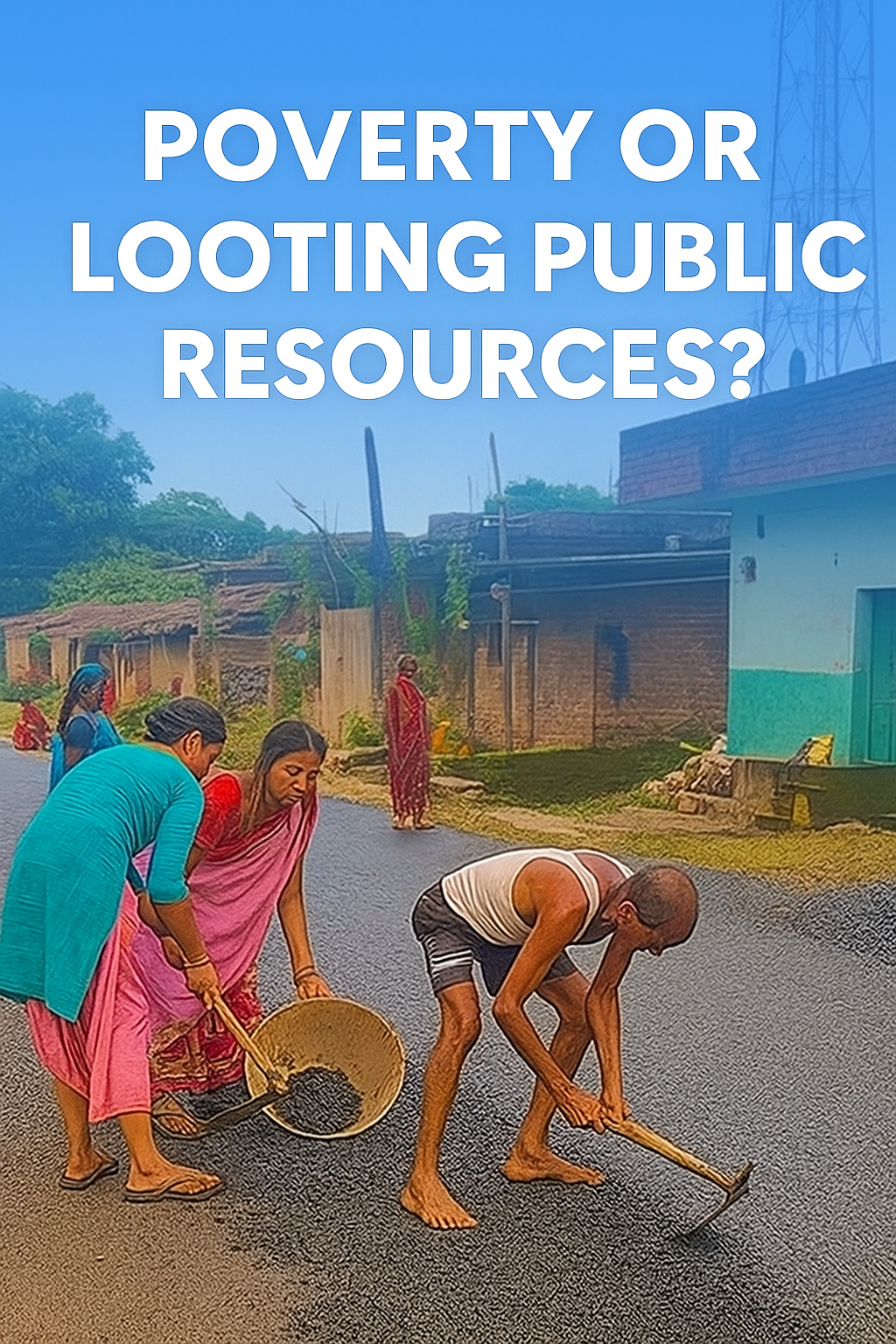
In recent days, a video from a rural part of Bihar has gone viral on social media, showing villagers digging up a freshly laid road and carrying away chunks of concrete and tar to use in building their homes. The incident has triggered heated debate across the country. Is this an act of helplessness driven by poverty, or does it reflect a mindset of looting public resources meant for all?
The picture is stark. Men and women can be seen with spades, baskets, and bare hands, removing material from a government-built road. For some viewers, it was a reminder of the harsh living conditions in Bihar’s villages, where many families lack the money to buy cement or gravel for even basic construction. For others, it was a glaring example of disrespect for public property—an act that not only destroys infrastructure but also wastes taxpayers’ money.
Poverty as the Root
Bihar remains one of India’s poorest states, with high unemployment and limited opportunities for sustainable income. Rural families often struggle to meet daily needs, let alone invest in construction materials. For such households, the temptation to reuse government resources is not about greed but survival. A small pile of gravel from the roadside can mean a stronger wall or roof for a family living in fragile mud huts. From their perspective, it is not theft but a way to recycle what they see as abundant material lying unused.
The Culture of Public Loot
At the same time, this cannot be dismissed entirely as poverty-driven desperation. Bihar has a long history of weak governance and misuse of public resources. Roads, often built with poor-quality material, are viewed by villagers as temporary structures, easy to dismantle. This sense of “sarkar ka maal hai, sabka hai” (government property belongs to everyone) reflects a cultural problem where people feel little ownership over public infrastructure. Such actions not only degrade community assets but also deepen the cycle of underdevelopment.
The Governance Gap
The viral video also points toward a governance gap. Why should villagers feel comfortable damaging a new road in broad daylight? The absence of monitoring, lack of local accountability, and substandard road construction all combine to create this scenario. If roads were built with higher quality and community participation, villagers might value them more. But when people see contractors cutting corners, they may feel entitled to take their share of what is essentially a half-delivered project.
A Double Reality
The truth likely lies in a combination of both explanations. Poverty makes people desperate enough to strip resources from public property. At the same time, decades of corruption and poor governance have created a mindset that sees government assets as lootable. Until Bihar can address both issues—improving livelihoods and instilling respect for shared resources—such incidents will repeat themselves.
The road-digging episode is not just about one village. It is a reflection of Bihar’s wider struggle: a state caught between chronic poverty and a broken system of governance. To move forward, Bihar must strengthen rural welfare programs, ensure quality public works, and foster a culture of ownership where villagers see roads not as free quarries but as lifelines for their own progress.






















Asha Raman foundation
5 months agoAsha Raman Foundation is working tirelessly to uplift rural communities in Bihar through education, healthcare, women empowerment, skill development, and sustainable livelihood programs. Our goal is to bring positive change in villages, reduce poverty, and provide equal opportunities for all. Together, we can build a stronger and self-reliant Bihar. Learn more asharaman.com